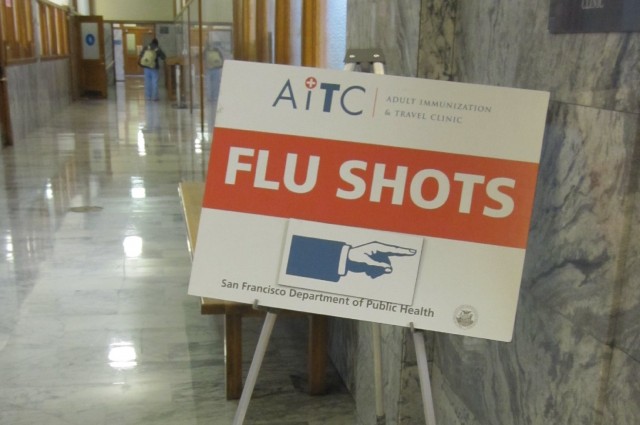Update February 21, 2014: The California Department of Public Health says 278 people have died of flu so far this year, and an additional 29 deaths are under investigation. While cases have been declining for a few weeks, state health officials still recommend people get vaccinated, if they haven't already.
State health officials have released the latest numbers on flu deaths -- 202 people have died so far this year and that's up from 147 last week. That's the bad news, but for the first time since early January, health officials are also saying that cases appear to be declining. At least for now. Flu season generally runs three months and is "notoriously unpredictable," said Dr. James Watt, with the California Department of Public Heatlh and recommended that everyone got vaccinated.
Here at State of Health, we've noticed that a lot of the same questions come up again and again. With that in mind, we've compiled some answers.
1. Is the flu shot really the best way I can avoid getting the flu? In a word, yes. The Centers for Disease Control (CDC) says "the single best way to protect against the flu is to get vaccinated each year." And you need to get it annually. While everyone over age 6 months should have it, CDC says, it's especially important for people in high risk groups including:
- People with certain underlying medical conditions including asthma, diabetes, chronic lung disease and obesity
- Children under age 5 and adults over age 65
- Pregnant women -- yes, pregnant women, the vaccine is safe and effective for you, CDC says.
Getting the flu shot is not a guarantee that you will not get the flu. No vaccine is perfect, but even if you get sick, you are likely to have a more mild course of illness if you have had the vaccine. If you haven't gotten vaccinated yet, you can find a flu shot location near you by entering your zip code on this map run by the federal government.
